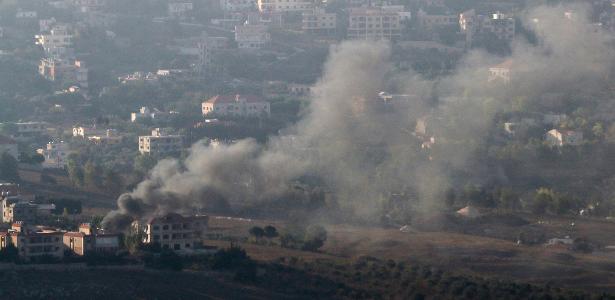
Over the weekend, Benjamin Netanyahu’s government attacked the group’s bases in Lebanese territory, claiming it was preventing an imminent Hezbollah attack on Israel. The militia said it had fired more than 320 rockets and drones at Israeli military bases. But the impact was minimal, drawing embarrassment from Arab groups and criticism from analysts.
At the United Nations and in governments around the world, there is a fear that a new front in the Middle East crisis could open, one that would have a destabilizing effect on Lebanon. Although a larger confrontation is not in the interests of Israel or Hezbollah, the crisis could spiral out of control.
The Brazilian embassy in Lebanon said in a statement that it is “aware of the increasing hostilities in areas of the country and is committed to providing the necessary guidance to the community.”
The advisory body made a series of recommendations to Brazilians, including:
- Do not travel to the country.
- The embassy recommended that citizens residing in or passing through Lebanon leave the country by their own means until life returns to normal.
- For Brazilians who decide to stay in Lebanon, the recommendation is not to stay in the south of the country, in border areas or in other areas at risk.
- Adopt safety instructions issued by local authorities, paying attention to areas considered at risk.
- Strengthening precautionary measures, especially in southern Lebanon, in border areas and other areas at risk.
- Do not participate in crowds and protests.
- Make sure your passport is valid for at least six months.
- Make sure you have a valid Brazilian nationality document (such as a birth certificate) and/or a valid Brazilian or Lebanese identity card.
The Embassy also suggests that Brazilians in the country update all their registration data with the Consular Section in Beirut.

“Proud explorer. Freelance social media expert. Problem solver. Gamer.”






